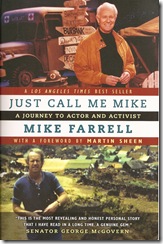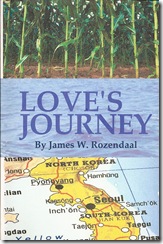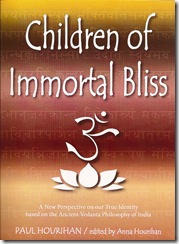From a bit part in The Graduate, to eight years on M*A*S*H as B.J. Hunnicutt, five seasons of Providence, and a part in Desperate Housewives, shy Mike Farrell has realized a childhood dream of becoming an actor. As a kid growing in West Hollywood he delivered groceries to the likes of Groucho Marx, Jimmy Stewart, and Lucille Ball, but these days "the beef" is in his outspoken activism.
It's all detailed in the new paperback edition of "Just Call Me Mike: A Journey To Actor and Activist" ($16.95 from Akashic Books).
Farrell will be appearing in Chico for a book signing and free-wheeling question session this Saturday at 7:00 p.m. at the Trinity United Methodist Church, 285 East 5th St. Tickets for the free event are available from the co-sponsors, Chico Peace and Justice Center and Lyon Books.
Both George McGovern and Bill O'Reilly have praised Farrell for his honesty, and the book highlights Farrell's decades-long involvement with what he calls "people issues" ( including "equal rights for women and minorities, . . . the right of the disadvantaged to a social safety net, . . . and an end to the death penalty").
But Farrell writes that he is not a pacifist: "I believe in the right of self-defense, be it personal or national, but I also believe in finding peaceful resolutions to disputes and oppose war except in the face of the most dire national threat." One time, introduced to Nicaraguan Sandinista officials extolling the virtue of the socialist revolution, Farrell was sickened by the "triumphalism" and evasion when he ventured questions about how "people's lives were being improved." In effect he asked "where's the beef?" and found only the stuff one finds in a barnyard.
Married since 1984 to actress Shelly Fabares, Farrell believes 9/11 should have been treated as "a grotesque and inexcusable crime" rather than an act of war; "America's emotional tension found an outlet in the war in Afghanistan. And it played into the hands of media manipulators who transformed George W. Bush from an inept bungler to a war president."
Farrell's Hollywood stories are frequently funny, but the author never loses sight of his bottom line: "Everyone deserves what everyone wants--love, attention, and respect."



